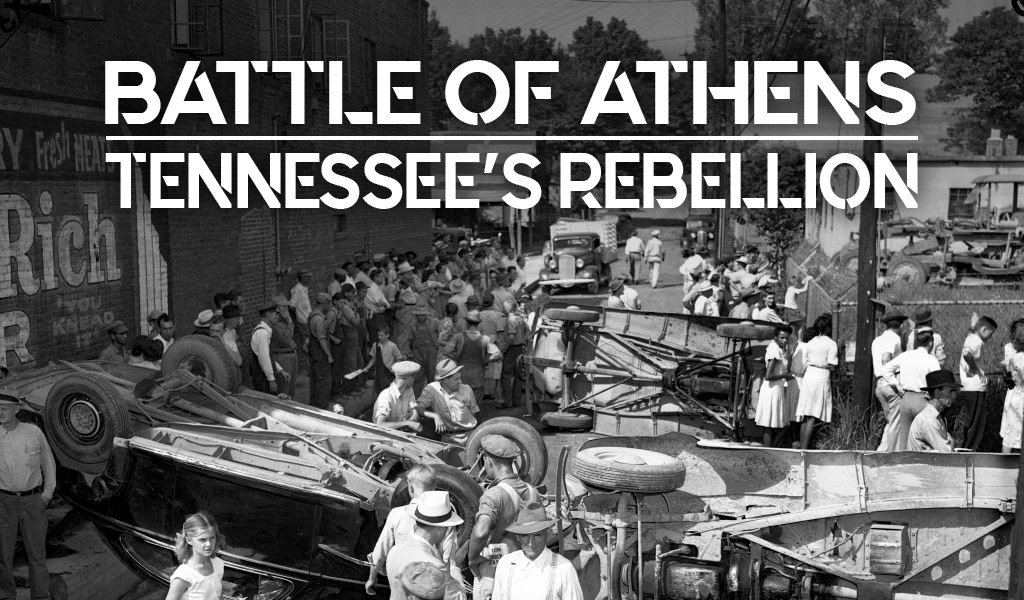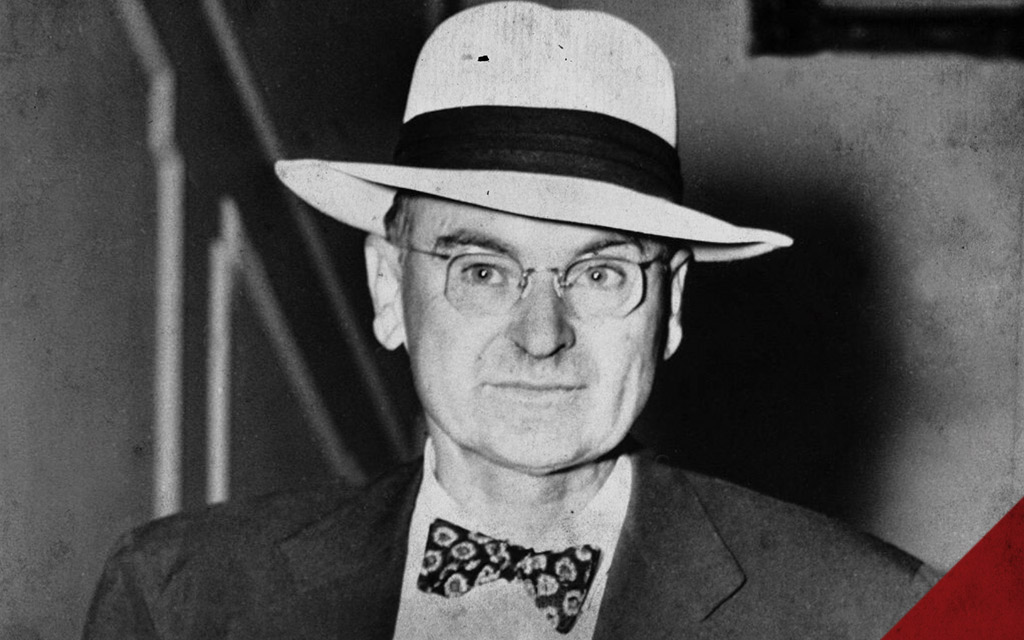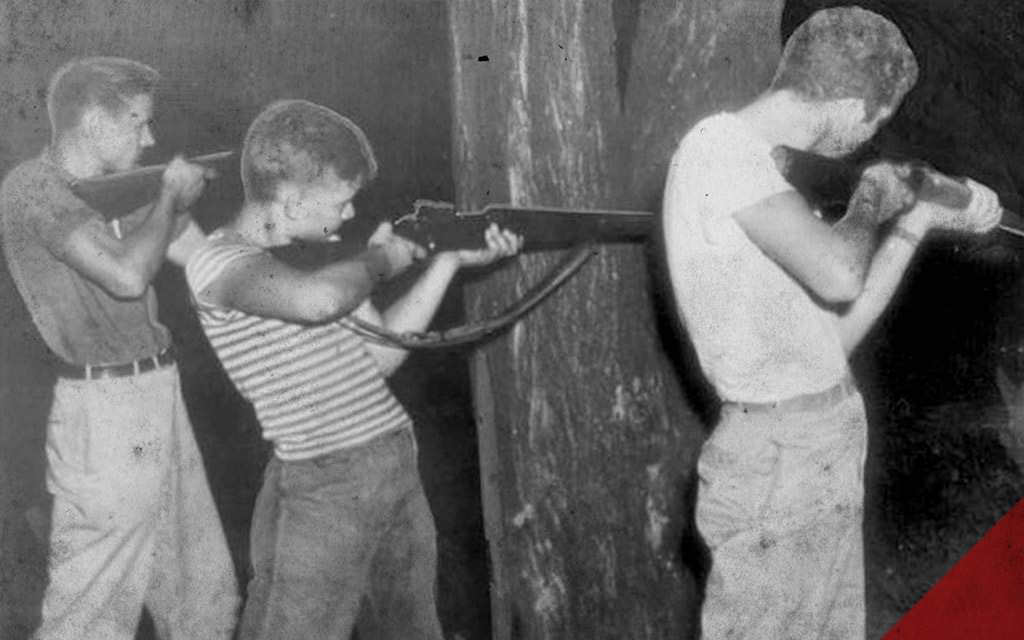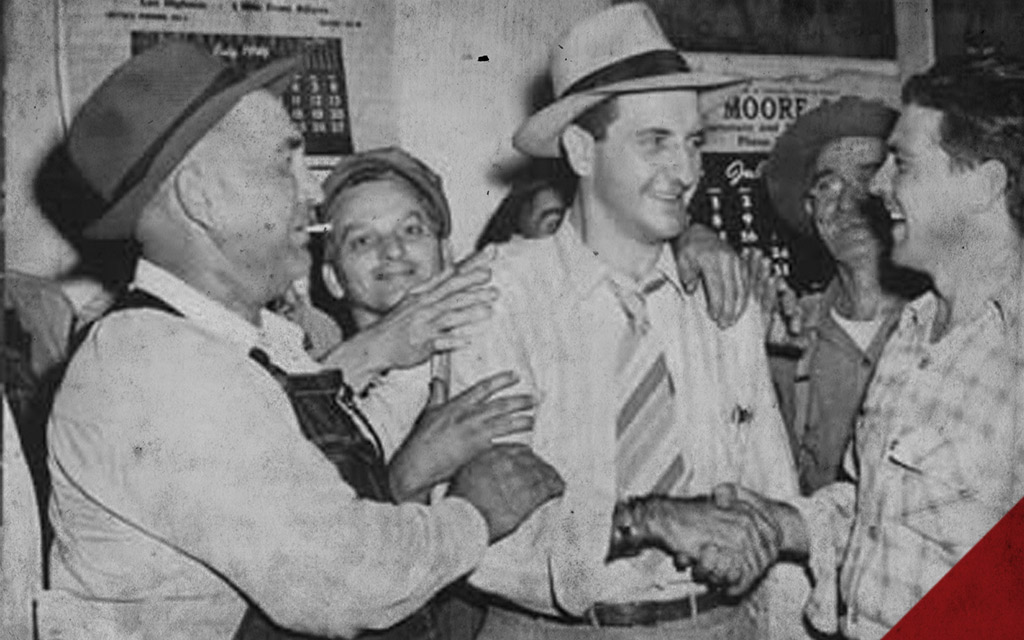

You’re not alone if you’ve never heard of the Battle of Athens. Yet, it was an extraordinary event in the annals of American history, unfolding in the summer of 1946 in the small town of Athens, Tennessee. Shaped by disturbing political corruption and electoral fraud, this dramatic clash of local citizens against the oppressive local government turned violent.
It was a historic moment. Returning World War II veterans, dissatisfied and disillusioned with the corrupt local administration, challenged the established authorities. They brought about a remarkable, albeit blood-streaked, change in their local government. Their actions symbolized a powerful resistance against institutionalized corruption and sparked significant national political discourse.
What Caused the Battle of Athens?
Some called it the Battle of Athens — others called it the McMinn County War. Whatever name you choose, it was a pivotal event in American history, taking place in Athens, Tennessee, in 1946. Ordinary citizens led a rebellion against corrupt government officials.
After World War II, many veterans returning to McMinn County found the local government under the control of a political machine led by Paul Cantrell, the county sheriff. The Cantrell regime was reportedly engaged in voter intimidation, ballot tampering, and other forms of corruption to maintain their stronghold in the county.
Veterans Take Action
In response to the perceived corruption, a group of veterans in the county formed a non-partisan political group called the “GI Non-Partisan League” to contest the 1946 local elections. The League committed to eliminating the Cantrell regime and restoring democratic rule in McMinn County. Their campaign symbol was a sketch of a World War II GI, and their rallying cry was, “Your vote will be counted as cast.”
E.H. Crump, a political boss from Memphis, Tennessee, also played a significant role in the Battle of Athens. Although he wasn’t directly involved in the events of Athens, his political machine dominated Tennessee politics for decades. It influenced the corrupt government practices in McMinn County, which led to the conflict. Therefore, the citizens’ revolt against these unethical practices was also a revolt against local officials and the broader political control of Crump’s machine.
Who was Paul Cantrell?

Paul Cantrell, former Democratic state senator, and McMinn County Sheriff.
Paul Cantrell was a prominent figure from a wealthy family in Athens, Tennessee. Cantrell had served as a state senator and was later the sheriff of McMinn County. His political background equipped him with the means to navigate the turbulent waters of power and made him a contentious figure. Allegations of corruption marked his tenure as sheriff, with many locals accusing him of using his authority for personal gain.
What was Cantrell’s Role in the Battle of Athens?
Cantrell was at the epicenter of conflict during the Battle of Athens. The battle began with tensions between returning World War II veterans and local governmental authorities, including Cantrell. The veterans, appalled by the perceived corruption and injustice perpetrated by Cantrell and his deputies, decided to challenge the existing power structure by fielding their candidates in the election. Cantrell, however, remained unyielding, igniting the fuse that would lead to the explosive confrontation.
In the heat of the battle, Cantrell’s role was one of defiance and resilience. He was instrumental in maintaining the firm stance of the incumbent authorities against the veterans. Cantrell refused to concede despite the escalating violence and chaos, exacerbating the struggle. Although he survived the battle, it forever tarnished his reputation. The Battle of Athens marked a pivotal moment in Cantrell’s life and served as a poignant reminder of the consequences of unchecked power.
The Battle of Athens

Former G.I. servicemen firing at the jail in Athens, Tennessee, on Election Day, 1946. (Tennessee State Archives)
It all came to a head on August 1st at around 3:00 in the afternoon. Patrolman C.M. “Cindy” Wise clashed with an elderly black farmer named Tom Gillespie. Wise attempted to stop Gillespie from casting his ballot, but Gillespie and a vigilant G.I. poll watcher stood their ground. Unfortunately, Gillespie faced racial slurs instead of a civil exchange, followed by a brutal, brass-knuckled blow to his face. The intensity escalated as Gillespie fled, with Wise firing a shot into his back.
In the aftermath, Wise faced prosecution for the Battle of Athens, slapped with a sentence of one to three years behind bars.
Tensions Rise
Meanwhile, the G.I.s, experienced warriors fresh from combat, huddled together at a local store’s makeshift headquarters. Determined to see justice prevail at the polls, they reached out to the governor and the attorney general of Tennessee, seeking backup. However, silence was their only response. The Crump Machine, flexing its power, dispatched armed guards to all the voting stations. Faced with the inevitability of a violent showdown, the G.I.s decided to arm themselves. Raiding the local National Guard armory, they seized weapons for their cause.
When the sheriff arrived at the polling station, he brazenly ordered its closure and took two G.I. poll watchers hostage. But the G.I.s refused to back down. They retaliated by taking seven deputies hostage, binding and dragging them into the deep woods. There, the G.I.s gave the deputies a sound thrashing. With the situation escalating, all polling stations shut down, and the ballots at the local jail, it was a crucial turning point. The G.I.s understood they had to take control of the jail before reinforcements arrived the next day.
The G.I.s Gain the Upper Hand

Knox Henry (Center) being sworn in as the new sheriff-elect of McMinn County. (Tennessee State Archives)
In their favor, the G.I.s had the advantage of military tactics fresh in their minds, thanks to their wartime experiences. The deputies, ill-prepared and lacking this knowledge, swiftly found themselves outmatched. The G.I.s laid siege to the prison, making their position clear: they’d spare anyone surrendering without a weapon. One desperate escapee reached out to an allied boss in the next county, appealing for reinforcements. His plea received a resounding refusal.
Ring after ring of dynamite bombs tore through the air, aiming to unsettle and unnerve. Cars exploded, flipping in mid-air, creating a volatile atmosphere. Then, a breakthrough. The G.I.s breached the jail using the roof and strategically placed dynamite. Inside, the deputies realized the futility of their resistance and surrendered. The jail and ballot boxes now belonged to the G.I.s.
Knox Henry was the new sheriff-elect but went into protective custody in the Sweetwater, Tennessee, jail. He was warned that the Crump Machine intended to murder him.
Final thoughts
A significant shift in political power occurred in the aftermath of the Battle of Athens. The victorious forces dismantled the corrupt local government, leading to upheaval and change. The rebels ousted the corrupt officials from their positions, and new, democratically-elected leaders took their place. This transition marked an end to a period of oppression and signaled the dawn of a more equitable era in Athens’ history.
The Battle of Athens also had far-reaching effects beyond local politics. It served as a stark reminder of the power of the people when unified against corrupt governance. The battle has been immortalized in American history as a symbol of resistance against tyranny, and its legacy continues to inspire movements for democratic reform. It is an enduring testament to the principle that government should be of the people, by the people, and for the people.


